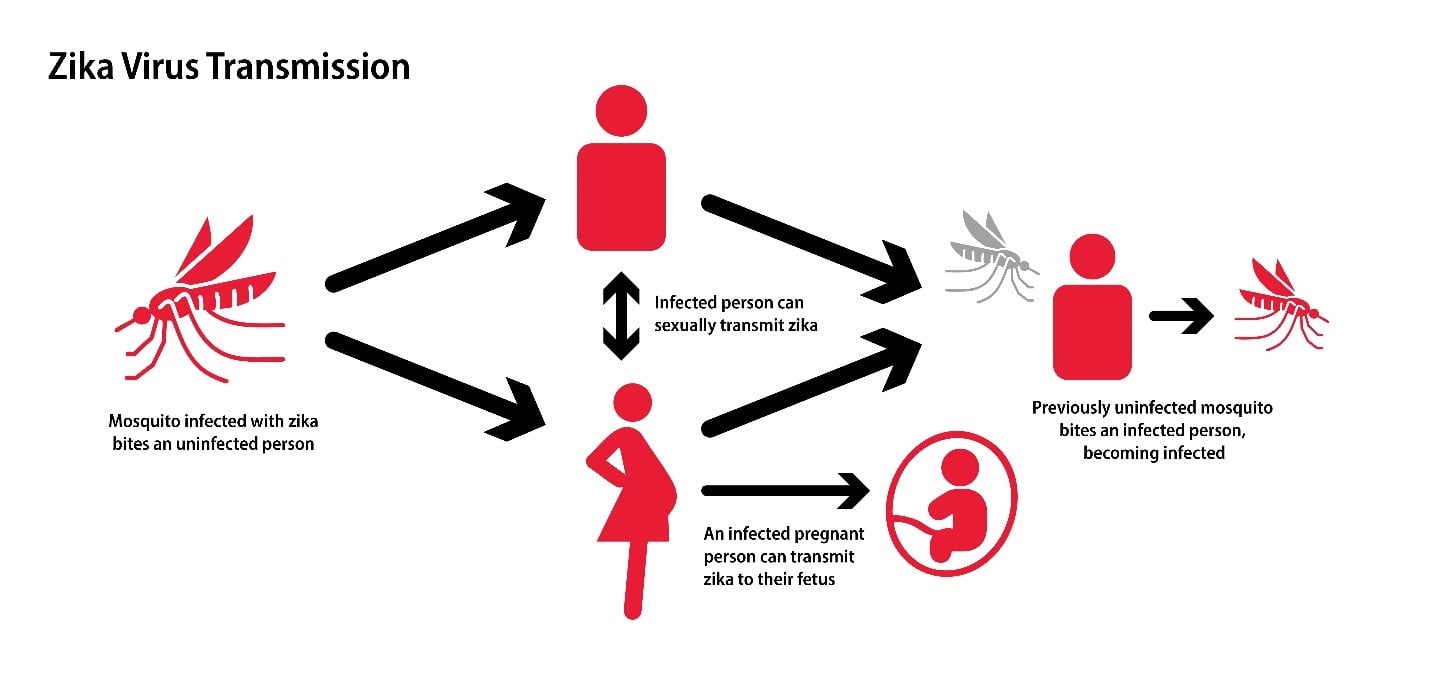Zika
Zika disease is a mosquito-borne viral disease. Zika virus was first identified in humans in 1952. It is primarily found in the tropical and subtropical areas of Africa, the Americans, Southern Asia and Western Pacific. South America in particular has been greatly affected by Zika disease. In 2016, the World Health Organization declared a Public Health Emergency of International Concern after reports of cases of microcephaly, neurological disorders and neonatal malformations that were eventually linked to Zika disease.
Global maps of Zika transmission show that many countries around the equator have current or past cases, with a wider zone of potential transmission where Aedes mosquitos are known to thrive.
Latest health alerts
- Stay up to date with information on Travel Health Notices.
Transmission
Zika virus is transmitted via the bite of an infected Aedes mosquito. This is the same mosquito that causes dengue, chikungunya and yellow fever infections. Zika virus can be transmitted from an individual who is pregnant to the fetus during pregnancy (congenital transmission) or around the time of birth (perinatal transmission).
In addition, sexual transmission has been reported through vaginal, anal and oral sex as well as through the sharing of sex toys. Zika virus remains detectable in semen for up to 3 months; condom use is recommended to avoid the possibility of birth defects if a partner becomes pregnant. While Zika has been found in breast milk, there are no confirmed cases of transmission via this route.
Signs & symptoms
Symptoms of Zika disease are typically mild and include fever, rash, headache, arthralgias, myalgias and conjunctivitis. Symptoms can last up to a week, and most people are not ill enough to seek care. Occasionally a Zika infection can lead to Guillan-Barré syndrome, encephalitis, meningitis or myelitis. However, Congenital Zika Syndrome is the most feared complication. It is estimated that 5% of fetuses born to mothers with Zika will have some birth defect.
Diagnosis
Testing for Zika virus depends on the patient type and their exposure history. Detailed information can be found in the 2017 MMWR.
Prevention strategies
Treatment
There is no specific antiviral treatment for Zika. Supportive care with over-the-counter medications is recommended. Until dengue infection is ruled out, avoid NSAIDs and aspirin-containing products given the risk of hemorrhage with that infection.
Prevention
There is no vaccine for Zika. Advise patients who plan to travel to high-risk areas to take steps to prevent mosquito bites during travel and for 3 weeks after returning, especially if traveling to an area with frequent Zika transmission.
Prevention of mosquito bites by wearing long sleeves and pants and using a DEET-containing mosquito repellant. Using condoms can help prevent sexual transmission of Zika. Council pregnant women, their partners and women planning to become pregnant about the risks of traveling to areas where Zika is found.
Reporting
Zika virus disease is a nationally notifiable condition. Immediately notify state, tribal, local or territorial health departments (24-hour Epi On Call contact list) about any suspected case of Zika to ensure rapid testing and investigation. States report Zika cases to CDC.
Additional resources






